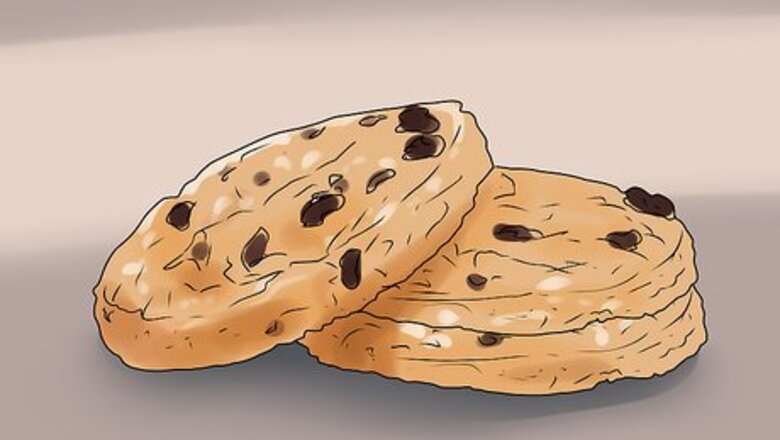
views
Limiting Foods that Make You Tired
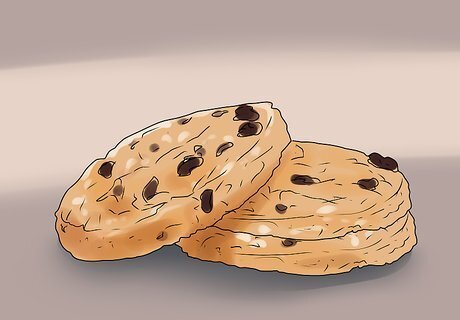
Avoid foods that contain refined carbohydrates. One big group of foods that is commonly linked to post-meal sleepiness is refined carbohydrates. These foods should be avoided or eaten in small quantities to avoid that afternoon sleepy feeling. Refined carbohydrates refer to a wide variety of items. All are overly processed, low in fiber, low in nutrients and higher in calories. They're typically made from sugar or white flour. They include foods like: candy, cookies, cakes/pies, snack cakes, pretzels, crackers, white bread, white rice, white pasta, sugary breakfast cereals and muffins. Refined carbs are digested rapidly and are quickly absorbed into the blood stream and raise blood sugar levels. This causes a rise in insulin, one of the hormones responsible for a steady blood sugar level. The rise in insulin pulls the sugar out of the blood, and this can result in low blood sugar, which is what you feel as the "crash."
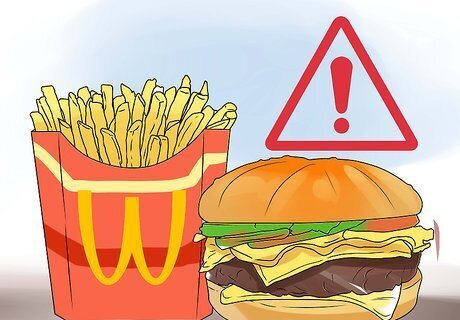
Skip meals that are high in fat. Another group of foods that has been linked to increased sleepiness and lethargy during the day are high fat and greasy foods. Try to minimize these at meals during the day to avoid an afternoon slump. Studies have shown that when you consume higher levels of fat during the day, you're more likely to fall asleep or be sleepy during the day as well. One of the proposed reasons for this is that fat is digested more slowly and releases different hormones that increase the feeling of sleepiness. Try to avoid foods like: fried foods, fast foods, fatty cuts of meat and rich or high-fat desserts or beverages.
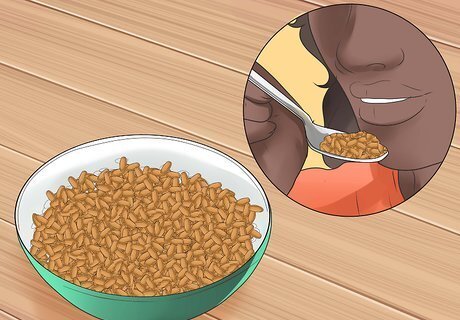
Be wary of foods high in tryptophan. You might be familiar with tryptophan and sleep — it's what makes you sleepy after eating your Thanksgiving turkey every year. This sleep-causing amino acid is found in other foods, so minimize these during the day to help you stay more alert. Tryptophan is an amino acid found in a variety of foods. When it's circulating in your body, it eventually gets changed into serotonin which helps you calm down and feel relaxed. Outside of turkey, there are other foods that contain this amino acid. Be wary of items like: spinach, soy, eggs, cheese, tofu, and fish. You don't need to avoid foods that contain tryptophan completely, but have smaller servings of these items at your daytime meals.

Save bananas and cherries for nighttime. Although there are many groups of foods that can cause drowsiness, there are also some more specific foods that have been linked to sleepiness as well. Both bananas and cherries have been shown to increase feelings of afternoon fatigue and drowsiness. Choose other fruit to have during the day to avoid this effect. Cherries have been shown to affect melatonin levels which is an important hormone in the regulation of your sleep patterns. Bananas contain minerals that have been shown to relax your muscles. Stick to other fruits instead, like apples, berries or oranges. In addition, stick to the appropriate 1/2 cup serving of fruit. All fruit does contain simple sugars, and if eaten in large amounts can spike your blood sugar.
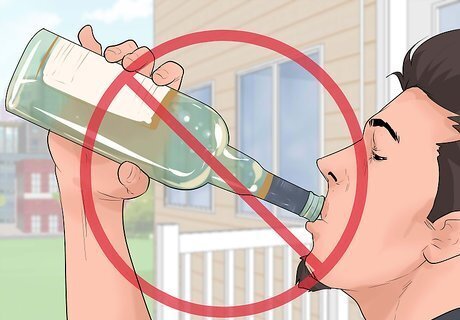
Be mindful of what you drink. It's not only foods that will cause you to get sleepy during the day. Many drinks and their ingredients can also cause you to feel a little drowsy during the day. Avoid energy drinks and shots. Although you may think these beverages would help curb afternoon sleepiness, no studies have shown that these drinks are effective. Many in fact show they have a very short-term effect (if at all) and then cause a big crash after. Do not drink alcoholic beverages. These drinks should be avoided during the day. Alcohol is a depressant and makes you feel very tired and sleepy. Note that if you do fall asleep after drinking, your sleep isn't sound or restful after alcohol consumption. Sweetened beverages should also be avoided. They're also a source of refined carbohydrates and can spike your blood sugar leaving you feeling sleepy afterwards.

Avoid overly large meals. In addition to the types of foods you eat during the day, the size of your meals can also play a part in how you feel. Larger meals, compared to small meals, may contribute to increased feelings of drowsiness, as they signal your body to slow down and focus on digesting. Studies have shown that large meals (where you'd feel full or very full) are linked to increased feelings of sleepiness during the day. This effect was increased even more so when you had a large meal of refined carbohydrates or fatty foods. If you feel like your meal size is contributing to your energy levels during the day, consider measuring out smaller portions and meals instead. For example, instead of three bigger meals during the day, go with four to six smaller meals instead. This can help keep portions small and provide your body will small bursts of energy during the day. Small meals should be portion controlled. Your total meal should be around 1 – 1 1/2 cups total per meal.
Eating Meals that Boost Energy Levels
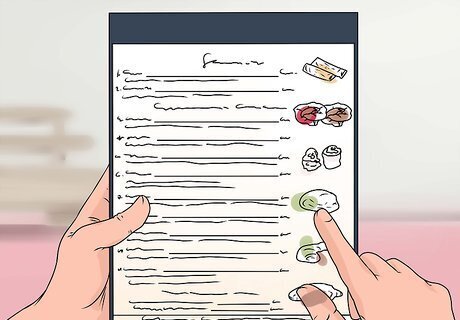
Stick to a structured meal plan. There are several things you can change in your diet to help keep you more awake and alert during the day. One of the most important things is to make sure you follow a structured meal plan everyday. When trying to avoid afternoon fatigue, one of the first things you should make sure you're doing is eating regularly. Regular meals gives your body a steady fuel supply, avoiding the spikes in blood sugar and then the crash. Studies have shown this helps improve concentration and alertness. Most people need to eat at least three meals per day; however, if you want to stick to smaller portions or feel better with more meals, try four to six meals daily instead. Avoid skipping meals — especially breakfast. Making a meal plan can help you stick to a more structured pattern and feel confident of what you're going to eat for each of your meals.
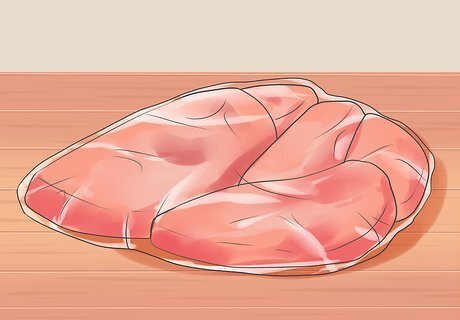
Eat a high-protein meal. Although poultry does contain tryptophan, higher intakes of protein (especially from other protein sources besides poultry) can have a stimulant like effect on your body. For your morning and afternoon meals, always include at least one or two servings of lean protein. Measure 3 – 4 oz of protein per serving. Choose leaner cuts of protein to avoid a high fat content. You can try lean beef, pork, low-fat dairy, eggs, beans and nuts. Protein helps slow your digestion down, keeping you more satisfied and preventing spikes in your blood sugar.
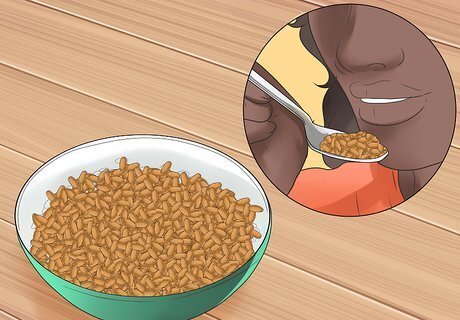
Add in a source of complex carbohydrates. The best combination for morning and afternoon meals is protein and a complex carb. This combination is not only satisfying, but helps provide energy and prevent fatigue. Complex carbohydrates, unlike refined carbohydrates, have much more fiber, vitamins and minerals. In addition, the source of carbohydrates in these foods is natural compared to added sugars or processed flours found in refined carbs. Although complex carbohydrates do increase your blood sugar, they do so slowly. this is because their "complex nature" makes them digest much more slowly in your GI system. Include at least one serving of a complex carbohydrate like: beans, lentils, peas, 100% whole grains and vegetables. In addition, serve yourself some lean protein along with this carbohydrate source. Together they'll keep you awake and feeling energetic during the day.
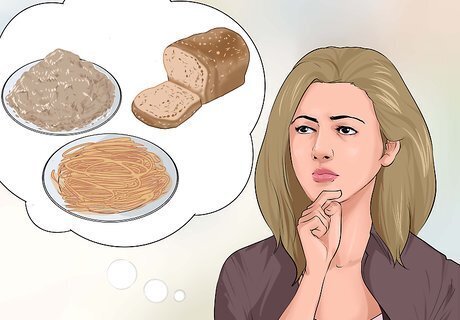
Aim for an overall well-balanced diet. Although there are specific foods to stay away from and foods to eat more of, it's important to follow an overall well-balanced diet to fight drowsiness. It's generally the combination of nutritious foods that provides your body with the biggest benefit. A balanced diet is one where you eat something from every food group each day. That means having a source of dairy, protein, fruits, vegetables and whole grains. In addition, you need to eat these foods in the appropriate serving sizes. This means measuring out 3 – 4 oz of protein, 1/2 cup of fruit, 1 cup of vegetables, 2 cups of leafy green or 1 oz or a 1/2 cup of grains. Also choose a wide variety of foods. Instead of having one or two types of items from within each group, choose several different items. For example, if you love fruit, don't always grab an apple. Choose a variety of berries, oranges, melons or peaches during the week.
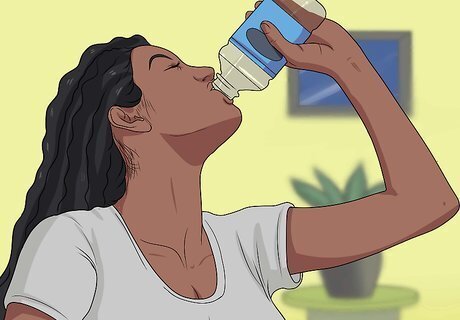
Drink adequate fluids. Another sneaky reason you may be feeling a little more sleepy in the afternoon is due to your fluid intake. If you're not getting in enough, this might be causing your afternoon fog. Studies have shown that even mild dehydration can cause afternoon fatigue. In addition, these studies showed that those who were mildly dehydrated had a depressed mood, lower concentration and increased frequency of headaches. To avoid becoming dehydrated throughout the day, aim for at least 64 oz (2 liters) or about eight glasses of fluid daily; however, depending on your body and activity level you may need upwards of 13 glasses daily. Stick to clear, hydrating fluids. Try water, sparkling water, flavored water and decaf coffee or tea.
Staying Alert During the Day
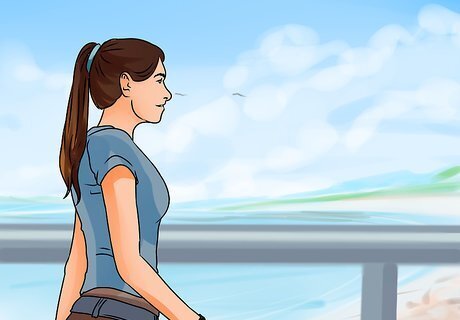
Get up and move. In addition to eating the right types of foods in the right amounts, there are other lifestyle behaviors that you can incorporate to avoid fatigue and drowsiness. Studies have shown that a short burst of activity after a meal (or when you're already feeling sleepy) can help beat the afternoon slump. Plan a mid-morning and mid afternoon walk or activity session. Move around for about 10 – 15 minutes. This activity doesn't have to be high intensity or done for a long period of time. Even just a few stretches in your office will help wake you up; however, if you can get outside, the fresh air and sunlight can help you feel a little more invigorated. Also aim to meet minimum physical activity guidelines. Doing 150 minutes of aerobic activity each week can also provide you with more energy.
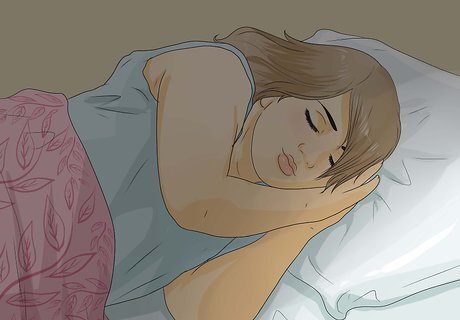
Get adequate sleep. Not surprisingly, if you don't get enough sleep at night, you're going to feel more tired during the day. No food can improve this sluggishness. Health professionals recommend that you aim for about seven to nine hours of sleep each night. When you don't get enough sleep, especially on a regular basis, you will experience an overall decrease in: concentration, ability to use higher level cognitive thinking skills, decreased ability to focus, and increased fluctuations in your mood.
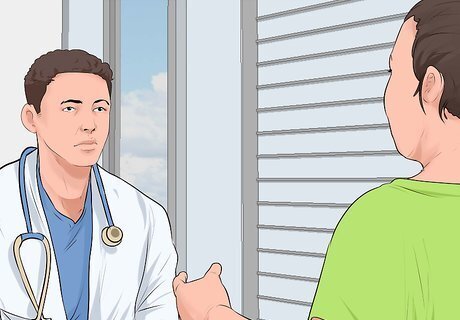
Talk to your doctor. If you feel that you're doing everything right — eating well, staying active and sleeping enough — but are still fatigued, talk to your doctor. If you're feeling any sort of abnormal symptom, it's a good idea to make an appointment with your physician. You'll need to discuss what's been going on and see if you need any tests done for further evaluation. If you're feeling chronically fatigued, talk to your doctor about how often you're feeling this way, how long it lasts and what (if anything) makes your fatigue worse or better.















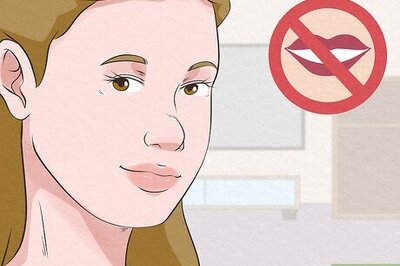


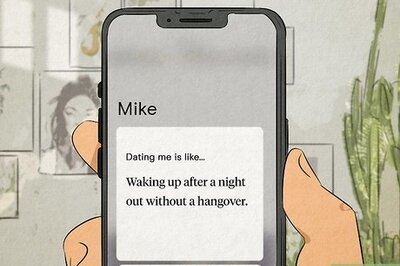

Comments
0 comment